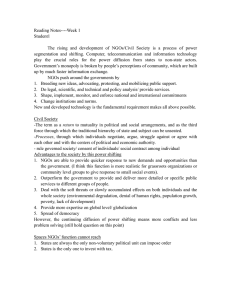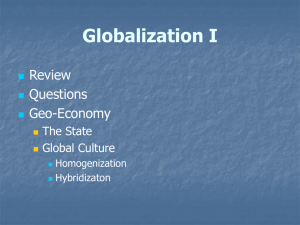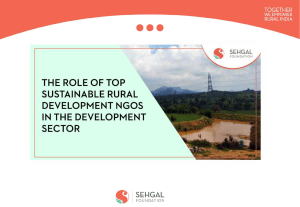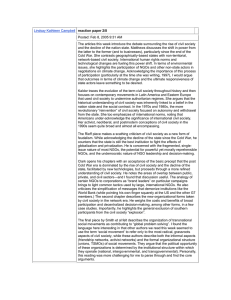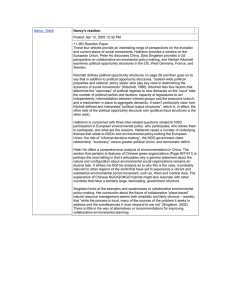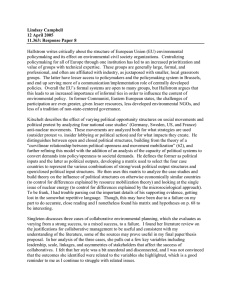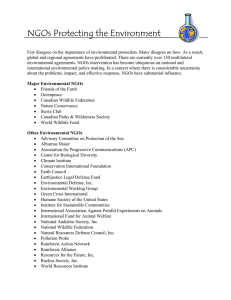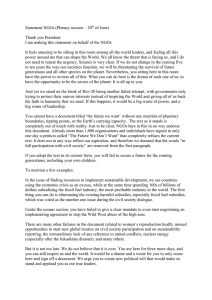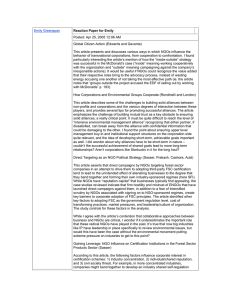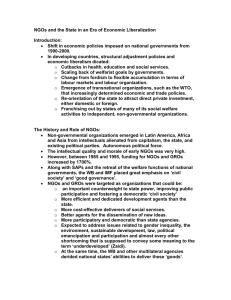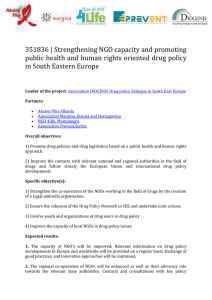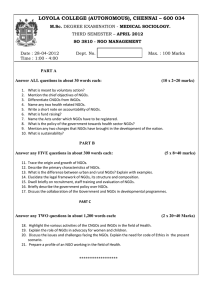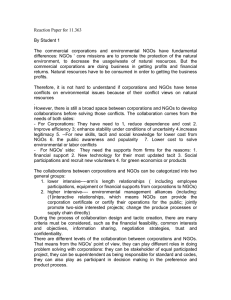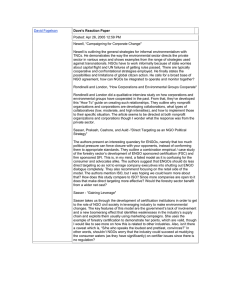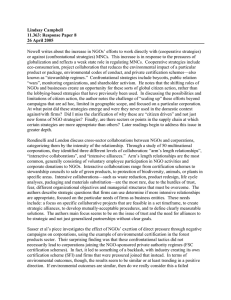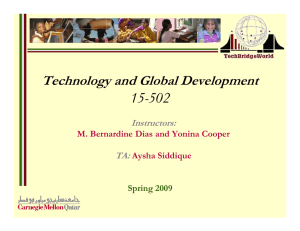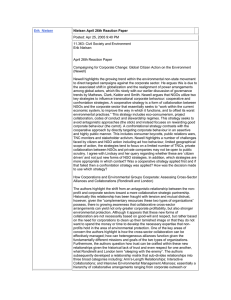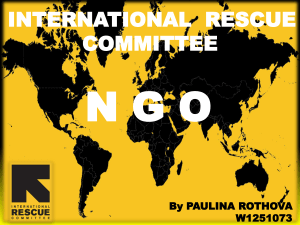11.363 Reaction Paper April 11, 2005 Student 1
advertisement
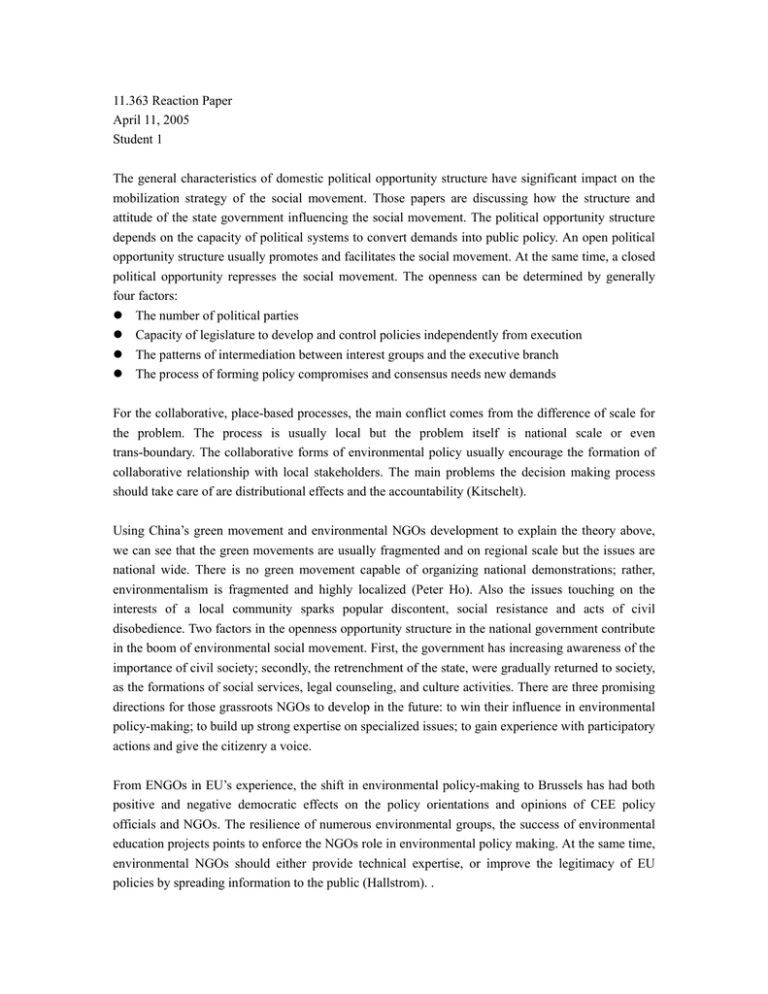
11.363 Reaction Paper April 11, 2005 Student 1 The general characteristics of domestic political opportunity structure have significant impact on the mobilization strategy of the social movement. Those papers are discussing how the structure and attitude of the state government influencing the social movement. The political opportunity structure depends on the capacity of political systems to convert demands into public policy. An open political opportunity structure usually promotes and facilitates the social movement. At the same time, a closed political opportunity represses the social movement. The openness can be determined by generally four factors: z The number of political parties z Capacity of legislature to develop and control policies independently from execution z The patterns of intermediation between interest groups and the executive branch z The process of forming policy compromises and consensus needs new demands For the collaborative, place-based processes, the main conflict comes from the difference of scale for the problem. The process is usually local but the problem itself is national scale or even trans-boundary. The collaborative forms of environmental policy usually encourage the formation of collaborative relationship with local stakeholders. The main problems the decision making process should take care of are distributional effects and the accountability (Kitschelt). Using China’s green movement and environmental NGOs development to explain the theory above, we can see that the green movements are usually fragmented and on regional scale but the issues are national wide. There is no green movement capable of organizing national demonstrations; rather, environmentalism is fragmented and highly localized (Peter Ho). Also the issues touching on the interests of a local community sparks popular discontent, social resistance and acts of civil disobedience. Two factors in the openness opportunity structure in the national government contribute in the boom of environmental social movement. First, the government has increasing awareness of the importance of civil society; secondly, the retrenchment of the state, were gradually returned to society, as the formations of social services, legal counseling, and culture activities. There are three promising directions for those grassroots NGOs to develop in the future: to win their influence in environmental policy-making; to build up strong expertise on specialized issues; to gain experience with participatory actions and give the citizenry a voice. From ENGOs in EU’s experience, the shift in environmental policy-making to Brussels has had both positive and negative democratic effects on the policy orientations and opinions of CEE policy officials and NGOs. The resilience of numerous environmental groups, the success of environmental education projects points to enforce the NGOs role in environmental policy making. At the same time, environmental NGOs should either provide technical expertise, or improve the legitimacy of EU policies by spreading information to the public (Hallstrom). .

